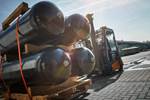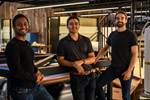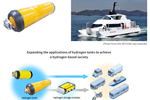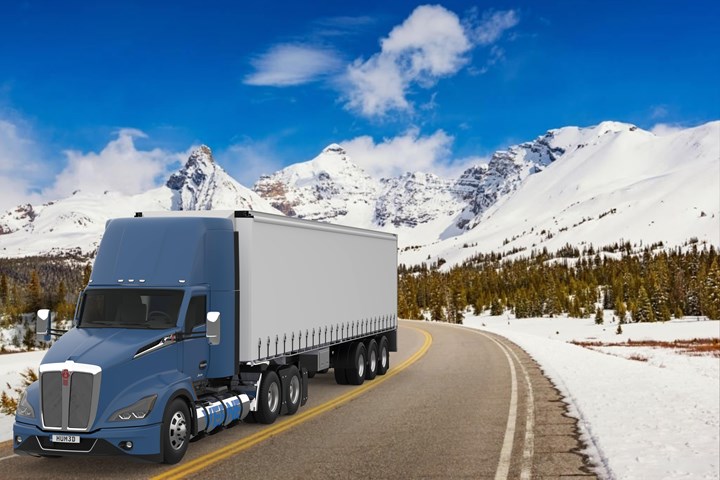Verne receives Alberta Innovates award to demonstrate CcH2
Funded project will demonstrate the performance benefits of cryo-compressed hydrogen fuel for Class 8 trucking and other heavy-duty transportation sectors.
Verne (San Francisco, Calif., U.S.) received a grant from Alberta Innovates (Edmonton, Alberta, Canada) to fund the development and demonstration of a Class 8 truck powered by cryo-compressed hydrogen (CcH2). Verne’s project will illustrate the performance benefits and decarbonization potential of the technology to key stakeholders in Alberta and beyond.
Verne’s CcH2 technology stores hydrogen at a maximum hydrogen density of 73 grams/liter, a 33% improvement over liquid hydrogen and an 87% improvement over 700-bar compressed gas hydrogen, maximizing vehicle range and payload. The increased density leads to greater range and payload: Verne says its CcH2 tanks enable semi-trucks to achieve diesel-equivalent range — or over 1,200 kilometers — without adding any weight to the system. Increased density also means that Verne’s storage systems reduce material use and cost by 50% relative to compressed gas storage systems of equivalent volume.
Through this project, Verne will work with Alberta-based partners to retrofit an existing diesel internal combustion engine truck to run on a blend of diesel and hydrogen (known as a “dual-fuel” combustion engine). Verne will then demonstrate the truck and a mobile CcH2 refueler with Alberta fleets and other collaborators. This project will demonstrate the performance of CcH2 in the rigorous Alberta operating environment and provide key stakeholders — including fleets, truck manufacturers and station developers — with first-hand experience with CcH2 and its benefits over existing options.
This grant was awarded as part of Alberta Innovates’ Hydrogen Centre of Excellence Competition II. Alberta Innovates is an Alberta crown corporation advancing innovation in the province, and the Hydrogen Centre of Excellence was founded to accelerate innovation across the hydrogen value chain in Alberta.
Related Content
-
Composites end markets: Automotive (2024)
Recent trends in automotive composites include new materials and developments for battery electric vehicles, hydrogen fuel cell technologies, and recycled and bio-based materials.
-
Plant tour: Joby Aviation, Marina, Calif., U.S.
As the advanced air mobility market begins to take shape, market leader Joby Aviation works to industrialize composites manufacturing for its first-generation, composites-intensive, all-electric air taxi.
-
SMC composites progress BinC solar electric vehicles
In an interview with one of Aptera’s co-founders, CW sheds light on the inspiration behind the crowd-funded solar electric vehicle, its body in carbon (BinC) and how composite materials are playing a role in its design.













